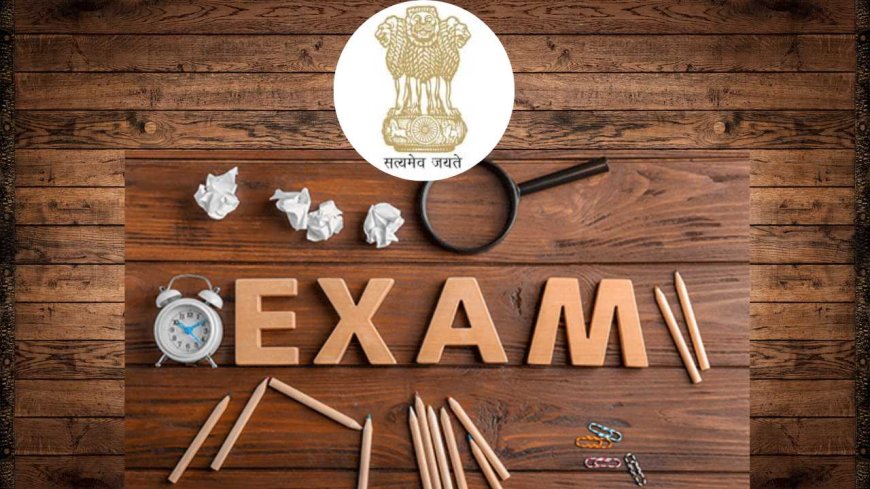Navigating the Challenges of Government Exams in India: A Comprehensive Guide
Embarking on the journey of government examinations in India is akin to entering a challenging labyrinth, where success demands meticulous preparation, unwavering determination, and a nuanced understanding of the diverse array of exams that govern the public sector landscape. These examinations not only serve as academic assessments but also as gateways to prestigious positions, offering stability, competitive remuneration, and avenues for both personal and professional advancement. In this in-depth guide, we will traverse the complexities of government exams in India, delving into the myriad types of examinations, the strategic facets of preparation, and the dynamic transformations occurring in the realm of public sector recruitment.

TABLE OF CONTENT:-
Introduction
Types of Government Exams
Preparing for Government Exams
Challenges and Solutions
Conclusion
Introduction:
Embarking on the journey of government examinations in India is akin to entering a challenging labyrinth, where success demands meticulous preparation, unwavering determination, and a nuanced understanding of the diverse array of exams that govern the public sector landscape. These examinations not only serve as academic assessments but also as gateways to prestigious positions, offering stability, competitive remuneration, and avenues for both personal and professional advancement. In this in-depth guide, we will traverse the complexities of government exams in India, delving into the myriad types of examinations, the strategic facets of preparation, and the dynamic transformations occurring in the realm of public sector recruitment.
Types of Government Exams:
India boasts a rich tapestry of government examinations conducted at both the central and state levels. Each category holds its unique significance, catering to a multitude of career aspirations. Let's explore some prominent types:
Civil Services Examinations (UPSC and State PSCs):
The Union Public Service Commission (UPSC) spearheads the prestigious Civil Services Examination, often considered the pinnacle of bureaucratic excellence in India.
Concurrently, State Public Service Commissions (PSCs) orchestrate similar examinations at the state level, providing opportunities for service within specific states.
Banking Exams:
Diverse banking examinations are conducted by institutions like the Reserve Bank of India (RBI), State Bank of India (SBI), and numerous public and private sector banks.
Staff Selection Commission (SSC) Exams:
The Staff Selection Commission (SSC) conducts various examinations such as the Combined Graduate Level (CGL) and Combined Higher Secondary Level (CHSL), serving as gateways to diverse government departments.
Railway Recruitment Board (RRB) Exams:
The Railway Recruitment Board (RRB) examinations open doors to a plethora of opportunities within the expansive network of the Indian Railways.
Defence Exams:
Examinations like the Combined Defence Services (CDS) and the National Defence Academy (NDA) stand as gatekeepers to esteemed positions within the armed forces.
State-level Exams:
Each state administers its own set of examinations for recruitment into state government departments, reflecting regional nuances.
Preparing for Government Exams:
Understand the Exam Pattern:
Grasping the nuances of the examination pattern is fundamental. This includes comprehending the stages involved, such as preliminaries, mains, and interviews.
Create a Comprehensive Study Plan:
Crafting a well-thought-out study plan is akin to charting a course through uncharted waters. Allocate time judiciously, emphasizing weaker subjects and allotting dedicated slots for revision.
Select the Right Study Material:
The selection of study materials plays a pivotal role. Rely on reputable sources, encompassing standard textbooks, online resources, and the invaluable insights gleaned from previous years' question papers.
Mock Tests and Practice Papers:
The adage "practice makes perfect" holds true. Regular engagement with mock tests and previous question papers not only familiarizes candidates with the examination pattern but also hones time management skills.
Stay Updated with Current Affairs:
The dynamic nature of government exams necessitates a keen awareness of current affairs. Stay abreast of national and international news through newspapers, magazines, and online platforms.
Revision is Key:
The revision is not just a formality but a cornerstone of success. Develop a structured revision schedule to reinforce concepts and maintain a comprehensive grasp on the syllabus.
Healthy Lifestyle:
The pursuit of excellence should not come at the cost of personal well-being. Ensure a healthy lifestyle with adequate sleep, a balanced diet, and regular exercise, as physical well-being significantly impacts cognitive function.
Challenges and Solutions:
Intense Competition:
The sheer magnitude of aspirants vying for coveted positions intensifies competition. To emerge triumphant, focus on a deep understanding of subjects rather than resorting to rote memorization.
Vast Syllabus:
The expansive syllabus of government exams can be overwhelming. Prioritize topics based on their weightage, relevance, and the examination's focus, thereby ensuring a comprehensive yet targeted approach.
Time Management:
Efficient time management is the key to success. Rigorous practice with time-bound mock tests not only enhances speed and accuracy but also cultivates the ability to navigate the examination within stipulated timeframes.
Stress and Anxiety:
The pressure associated with government exams can give rise to stress and anxiety. In response, candidates must cultivate stress management techniques, ranging from meditation to deep breathing exercises, fostering mental resilience.
The Evolving Landscape of Government Recruitment:
As the world undergoes rapid transformations, the recruitment processes for government exams in India have not remained immune to change. Several notable trends underscore this evolution:
Digitalization of Exams:
A paradigm shift towards digitalization is evident, with many exams transitioning to online modes. This not only reduces paperwork but also streamlines the examination process, making it more efficient and accessible.
Inclusive Recruitment Policies:
A concerted effort towards inclusivity is observed, with reservations being provided for economically weaker sections (EWS), scheduled castes (SC), scheduled tribes (ST), and other backward classes (OBC), fostering equal opportunities for all.
Introduction of New Exam Formats:
To assess candidates comprehensively, some examinations have introduced additional stages such as group discussions and personal interviews, evaluating not only academic acumen but also interpersonal skills and overall suitability for the job.
Focus on Skill Assessment:
Beyond academic knowledge, there is a growing emphasis on evaluating practical skills and problem-solving abilities, aligning recruitment processes with the demands of a dynamic professional landscape.
Conclusion:
Government exams in India are not mere academic pursuits; they are gateways to careers that shape the trajectory of the nation. While the journey may be arduous, with proper planning, unwavering dedication, and adaptability, aspirants can successfully navigate the labyrinth of challenges. As the landscape of government recruitment continues to evolve, staying informed about these changes and adopting a holistic approach to preparation becomes imperative. Ultimately, the pursuit of excellence in government exams is not just an individual endeavor but a commitment to contributing meaningfully to the growth and development of the nation. Embracing this perspective transforms the preparation process from a personal goal into a collective aspiration for a brighter, more dynamic future.




